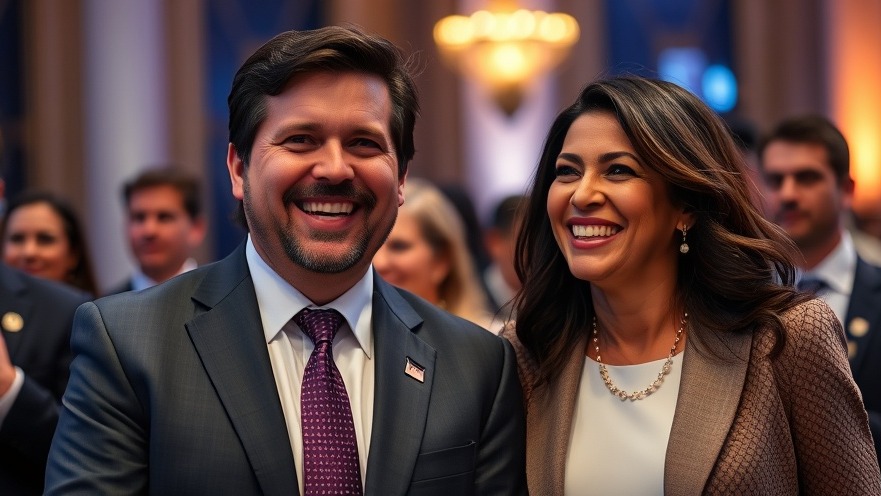
Usha Vance: A Future Perspective on the Role of First Lady
Amidst the swirling currents of political aspiration and personal progress, Usha Vance, the Second Lady and spouse of Vice President JD Vance, has started to turn heads regarding the possibility of her becoming the First Lady in 2028. During her appearance on Meghan McCain's show, 'Citizen McCain', Usha expressed that while she is not actively 'plotting out next steps,' she is open to whatever the future may hold. Her lighthearted approach reassures supporters and observers that she intends to take life's journey as it comes, rather than impose pressure on herself or her family.
Emphasis on Family Values in an Interfaith Household
Raised in an interfaith household, Usha Vance has emphasized the significance of nurturing values in her family life. She and her husband are dedicated to imparting strong morals and resilience to their children, highlighting how their diverse background plays a pivotal role in shaping their family dynamics. Usha’s perspective on parenting sheds light on the broader social implications of interfaith marriages and the profound lessons that can be imparted to children raised in such environments.
The Role of the First Lady: Historical Context
The role of the First Lady in the United States has transformed significantly over the years. Historically, the First Lady has been seen as a hostess, social advocate, and sometimes, a powerful political figure in her own right. As women continue to play an increasing role in politics, the prospect of Usha Vance potentially stepping into this role in 2028 reflects not only her personal ambitions but also the evolution of this influential position. This evolution highlights a continual shift towards more engaged, proactive first ladies who address critical issues from health to education.
Political Landscape Shifts: Opportunities and Challenges
As we look towards the 2028 election, the political landscape is expected to shift drastically. With veterans of the previous administration adjusting their strategies and new challengers emerging, Usha's potential candidacy will likely bring both opportunities and challenges. The discussion around Usha's potential as a First Lady centers not merely on her background but also on how her values and public persona might resonate with a diverse electorate. Navigating these waters will require agility and strategic foresight.
What it Means for Today’s Voter Base
Today's voters are increasingly looking for authenticity, relatability, and inclusivity from their political leaders. The dynamic between Usha and JD Vance may appeal to those who value family-oriented leadership grounded in real-life experiences. As American society becomes more integrated, voters may gravitate towards candidates who understand and embody diverse cultural narratives. Usha’s potential candidacy could provide an avenue for those voices that are often underrepresented in national dialogues.
Public Sentiment: What Voters are Saying
Public opinion monitoring indicates a growing interest in candidates who reflect everyday American experiences, especially regarding family and resilience during challenging times. In forums and social media discussions, potential voters often express their desire for leaders who prioritize domestic issues and community ties. Usha’s candidacy could represent a beacon for those preferring a compassionate approach mixed with effective governance.
Looking Ahead: Predictions and Insights
As 2028 approaches, political analysts are watching Usha Vance's trajectory closely. While she remains cautious about planning her future too far in advance, discussions surrounding her role and potential First Lady status indicate a shift in how future political figures are perceived—ones who are adaptable, relatable, and in tune with the public sentiment. Experts believe her approach could redefine the First Lady's role significantly.
Conclusion: The Importance of Representation
Usha Vance’s prospective journey toward a potentially historical role emphasizes the importance of representation and diversity in politics. As she navigates her place in the national discourse, voters are reminded that the fabric of American leadership continues to evolve and expand. The discussion surrounding Usha not only speaks to her individual aspirations but also reflects a larger narrative about the representation of women in the political arena.
As Usha prepares for whatever lies ahead, it’s a reminder of the broader American story—one marked by resilience, hope, and the power of diverse voices in shaping our nation's future.
 Add Element
Add Element  Add Row
Add Row 



 Add Row
Add Row  Add
Add 


Write A Comment